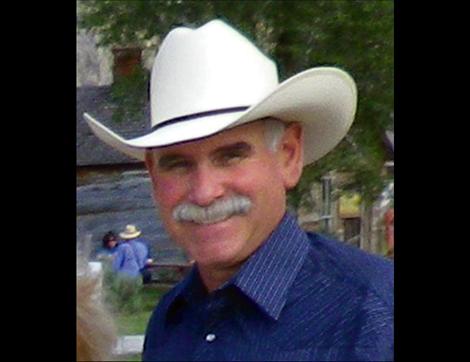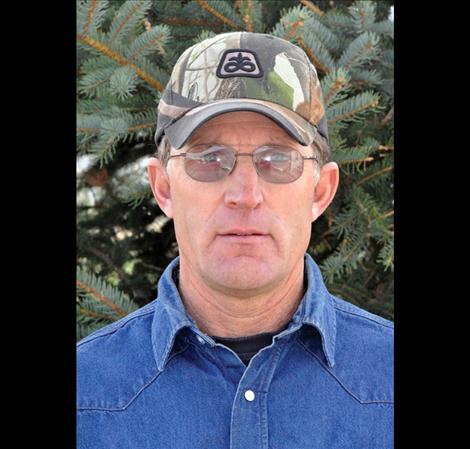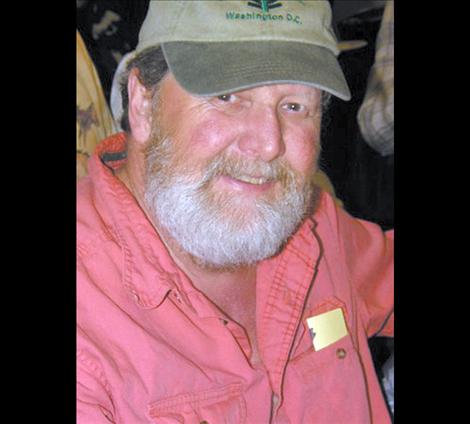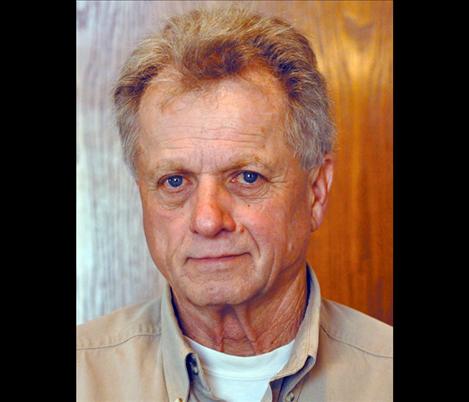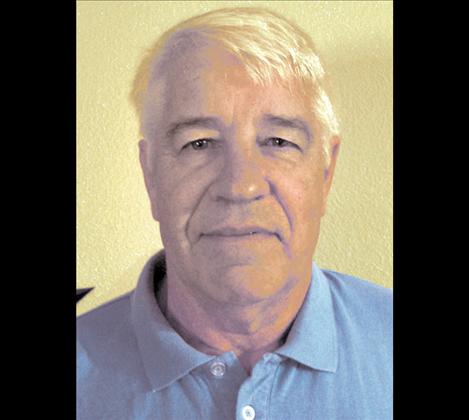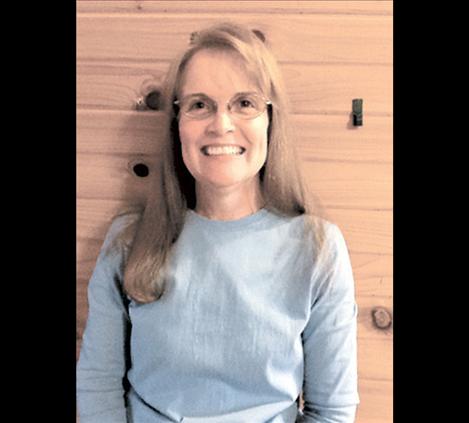Flathead, Mission and Jocko Irrigation District candidates discuss issues
Hey savvy news reader! Thanks for choosing local.
You are now reading
1 of 3 free articles.
Bohn, Guenzler in running for District 3
Bryan Bohn and Paul Guenzler are vying for one commissioner’s seat in the election for Flathead Irrigation District 3.
Bryan Bohn is a farmer and has lived near Ronan for almost 31 years.
He’s served as a Flathead Irrigation District commissioner for about a year and a half.
“I’m more knowledgeable on the issues at hand because I’ve been right in the middle of it,” Bohn said, adding that it’s taken hours and hours of studying the issues since there is so much information.
“I know exactly how important this water is; I live it every day,” he said. “It’s dry out here.”
Bohn lives about 13 miles out of Ronan and since the land’s so dry, he’s learned about managing water.
Important issues for Bohn are water rights and the farm turnout allowance. The Flathead Irrigation District board is very important to him, he said, noting that since he will turn 31 in June, he will be here a long time.
Paul Guenzler is a fourth generation rancher in the Mission Valley and has been an irrigator in the Flathead Irrigation Project for 30 years. Currently the Guenzler family owns or leases more then 1,400 acres of irrigated land “so I have a lot of skin in the game,” Guenzler said.
The compact is Guenzler’s first issue.
“We need to get serious and get a compact through the legislature. It will add security and guarantees our future in agriculture, which at this time is really in question. When agriculture flourishes, so does everyone else,” Guenzler said.
Another issue for Guenzler is irrigator control of the Flathead Indian Irrigation Project. Since the Bureau of Indian Affairs has taken back the project, irrigators have little or no control, according to Guenzler.
He’s also concerned about the added cost of paying federal wages and benefits with the BIA takeover plus added attorney fees, lawsuits and litigation costs and increases in administration fees. Guenzler said his common sense approach would keep irrigators in business.
District 5 candidates voice concerns
James L. “Jim” Baker and Bruce White are both running for one open seat on the Flathead Irrigation District 5.
Baker is the fourth generation of his family to earn a living off the land his ancestors homesteaded in the early 1900s.
“I have a lifetime of experience and want to make sure that we have adequate water for our agriculture base and protect our water rights. I would also like to be a part of the process to reach a fair negotiated agreement for the water compact,” Baker said. “The land purchased included water rights, resulting in water rights knowledge that has been passed down from generation to generation.”
He added that his previous board experience will aid him in making important decisions for irrigators.
Upcoming challenges for the Flathead Irrigation District are rebuilding the Flathead Joint Board of Control, equal irrigator participation, effective budgeting and managing of irrigation funds and strong leadership of the FID, management of the Flathead Indian Irrigation Project and coming to a fair agreement for the water compact, according to Baker.
Bruce White is a rancher and has land in both Lake and Sanders County.
“I was born and raised here. I’ve been farming, ranching and irrigating for 30-plus years,” White said.
White is no stranger to boards as president of the rural fire district and the Hot Springs Stockyard, and after serving as a Montana Stockgrowers Association board member for 10 or 15 years.
“I think the major problem (for the irrigation district) is the employee situation,” White said.
Since the Bureau of Indian Affairs took over management of the FIIP after the collapse of the Flathead Joint Board of Control, employees have heard they will be laid off. That’s approximately 12 or 13 employees, and wages for these jobs will be going up at least $5 an hour, White estimated.
“It’s going to cost us more, and we’ll get less done,” White added.
White also said the Bureau of Indian Affairs didn’t do a good job when it managed the FIIP before the FJBC.
White would like to see FIIP be under local control again.
Trimble, Christopher vie for Jocko commission
JOCKO — John H. Trimble and Roger Christopher are in competition for a single Jocko Irrigation District Commissioner seat currently up for grabs.
Incumbent Christopher is a lifelong resident of Lake County, a farmer and United States Forest Service worker. He touts his decades of experience working with the irrigation system.
“I grew up on a farm. I worked for several farmers changing pipe and changing flood water,” Christopher said. “I am a long-time irrigator in the Jocko Valley. My dad worked for Jocko Valley Irrigation District for 40 years. I grew up riding ditches with him. This taught me much about our irrigation district. I learned where the river diversions are, the network of canals, access to turnouts and where underground gravity sprinkler systems go and whom they serve. I’ve grown to understand the difficulties of delivering water to irrigators.”
Christopher said the biggest issue facing Jocko Valley irrigators is securing a reliable, adequate supply of water for irrigation at a reasonable rate. Christopher’s goal is to end costly litigation and reduce administrative assessment to $2.50 per acre.
“The BIA’s re-assumption of control over FIIP is the reality that we should support and try to make work for the near term,” Christopher said. “I support continuing to have respectful discussions with Confederated Salish and Kootenai Tribes and the Bureau of Indian Affairs to reach a solution that will allow irrigators to have a greater say in project operations and management in the future. The costly litigation that has pitted irrigators against one another should cease and we should use our irrigation fees to provide the best services to our irrigators.”
Christopher has served as an irrigation commissioner, a member of the Missoula County 4-H Council, and a member of Friends of Arlee School.
“Experience on these boards has taught me to listen to others’ concerns, know that compromise is necessary, and that negotiation requires respect and empathy,” Christopher said.
Challenger John H. Trimble is a retired contractor, builder and remodeler who has lived in Mission Valley for 33 years.
If elected Trimble said he’ll bring honesty, reliability, and construction knowledge and management to the office.
According to Trimble the biggest issues facing Jocko Valley irrigators is “money management, the rise in water costs, and the basic right to use water that belongs to everyone, not just a chosen group that will take anything that can be had.”
Posivio, McCready face off for Mission Commissioner
ST. IGNATIUS — Gene Posivio and Claudia McCready are opponents in the race for Mission Irrigation District commissioner.
Posivio is a farmer and works as bus maintenance personnel at St. Ignatius school district. He is also a retired teacher.
Posivio is a lifelong resident of Mission Valley, with the exception of living in Dillon during his college career and Germany when he was drafted into the Army.
“I feel that after my teaching career I have learned to listen to all stakeholders, study the situation, research possibilities and act in the best interest of those people I serve,” Posivio said. “I also feel that the past six years on the St. Ignatius School Board of Trustees has given me valuable experience working with the public. I have a genuine interest in living the rest of my life in this valley.”
Posivio said the three most important issues facing the Mission Irrigation District include balancing costs and availability of water.
“As farmer, we cannot afford any increases in the cost of farming and ranching, or any decrease in the amount of water we have to irrigate with,” Posivio said.
Operating the project as effectively and efficiently as possible, while keeping the ability to conduct repairs and maintenance is also a priority.
Posivio said he worries about federal agencies meddling in local affairs when they are not needed.
“I believe that local people can solve their own problems without interference,” Posivio said.
Claudia McCready is a rancher and owner of Gambles Hardware Store. She has lived in Mission Valley for 55 years. She said her ranching and business background are both essential to understand the proposed Confederated Salish and Kootenai Tribes Water Compact.
“The Water Use Agreement and Compact has very complicated documents with long-lasting repercussions,” McCready said. “I believe they are our safest way to have secure water supplies and taxes we can afford.
The Bureau of Indian Affairs’ resumption showed just how fractured our districts have become. We need to find common ground, and unity to get our project back under local control. Our district meetings have become a feeding ground for special interest groups who think they have hit the lottery for litigation. I don’t think irrigation dollars should be spent defending special interest ideas.”
Farmers learn early how to separate their needs from their wants, according to McCready.
“The Compact requires compromise on both sides for it to work. The State of Montana has spent millions and many years drafting this agreement, with the irrigators’ feedback coming in at all times. The state has no reason to litigate. If the districts try to litigate on their own, it will severely hurt the farmers and ranchers in this area. We could almost rebuild the entire project for what the costs would be. I’d rather spend our money on our project so we can get the water we need. I would rather have local control. The project had been doing the best job in history these last few years.”
McCready said she hopes the district can return to a common-sense approach to a difficult problem.
She encouraged people to stop by Gambles Hardware store to view a copy of the state’s report on the compact.
















